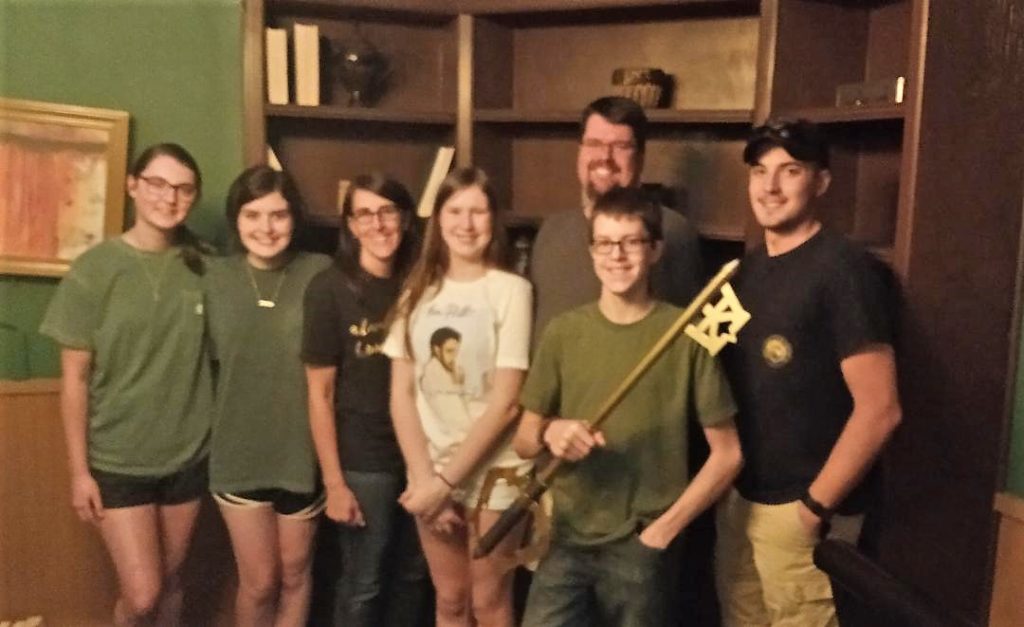Adventures in… Play-testing!
Adventures in… Play-testing!
Here’s a sales pitch; Hey, you should pay me to try out this thing I created and spend an hour and a half there and see if you feel like an idiot after an hour and a half flipping through old books, picture frames, and figuring out how to fit the right key in the right lock. Sounds exciting right? Luckily enough I had the luxury of finding about 50 people to do just that. The only exception is they didn’t pay me in cash, but instead they paid through their comments, criticisms, and the most invaluable thing, their time.
Game design on this scale and of this style is completely new to me. I understood the elements to what it takes to fabricate it, but in all honesty I didn’t know how much was too much and how much is too little. The week before I started play-testing and my nervousness became apparent I kept thinking this room is going to be too easy, too fast, and I was at a bit of a loss in ways I could make it more difficult.
Then came play-testing.
You learn a lot about people when you watch how something you create plays out. Now there are trends and regularities that can be seen, and you tend to notice that is how the room will play out each time. However, from time to time you learn that people think way outside the box. From climbing onto furniture after they were informed not to do so or disassembling your grandfather clock thinking there’s some intricate puzzle inside, or even finding a way to bypass an entire puzzle by essentially picking a lock. All of these instances are so helpful in learning about your room.

Was my initial room design too easy and too short? Actually, it was quite the opposite as most groups were completing the room at around 80 minutes including quite a bit of nudges and hints along the way. While a bit shocking, I knew this was a good problem to have as I would be able to more easily scale back difficulty than to add to it. After the first weekend of groups struggling to finish in an hour, I finally did something drastic and pulled a major centerpiece of my room design out completely. The next two play groups finished in 66 minutes and then 58 minutes. Finally, it reached its goal and I couldn’t be more excited. When that group completed the room in under an hour, I was probably more excited than they were.

After each group finished play-testing the room I brought them into the conference center and had them fill out a fairly short evaluation of the game design and their experience. Then we would have an open group discussion to get more insight to what they experienced. We discussed everything from the difficulty of the puzzles, to the temperature in the room, to even the quality of our bathroom facilities. For me there is no detail that needs to go unchecked to ensure our guests have a great experience the moment they walk into our doors and when they leave them.

So the last part of this blog I wanted to share with you was my favorite written comments I had on some of the evals:
Set Work –
“The set seemed more realistic than other escape rooms I’ve seen”
“Very thoughtful and good attention to detail”
Puzzles –
“Very challenging, it was fun putting them together”
“Love how many puzzles there were”
Fun Factor –
“Wow, way exceeded my expectations!”
“Had an amazing time the whole time”
Frustration Level –
“It was honestly too fun for me to get frustrated”
The BEST WRITTEN COMMENT MADE ME SO HAPPY TO READ because IT PINNED exactly WHAT OUR COMPANY IS TRULY ABOUT:
“Had a great time and got to know someone a little.”
For me gamesmanship is all about this right here. The interaction between others. It is the same reason I enjoy board games or physical activities with others. Getting people away from the screens and actually being together and truly interacting.
Escape rooms are one of the greatest tools to use for team-building with others. This is a major part of why I felt it to be so important to incorporate the conference space. While it will be used for birthday parties, anniversaries and other events I hope more than anything businesses will use it to help build comradery among their employees. To me this is the defining difference for companies. I think many companies preach being a family or saying they care, but the words hold no weight. They believe you are being compensated for your time with a check and a few random company benefits that you may or may not take advantage of. At The Lost Room we believe that you don’t live to work or even work to live, but we believe that cliché thought that if you do something you love you never work a day in your life.